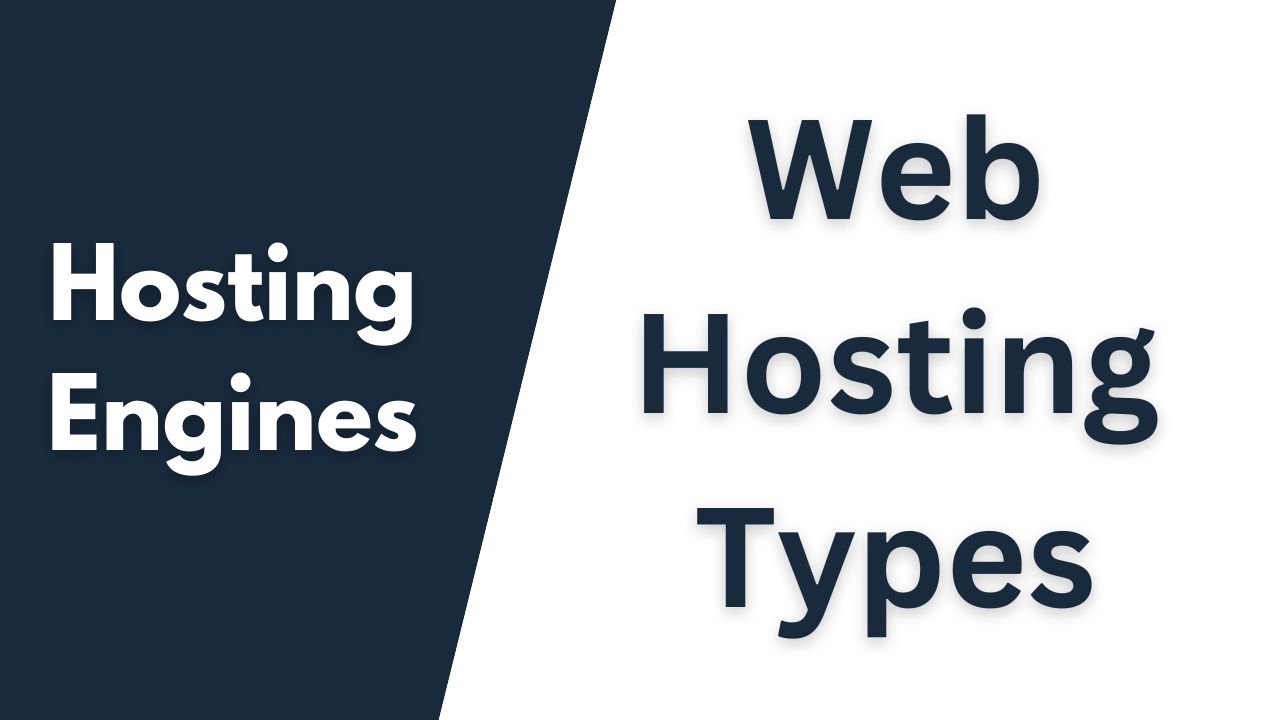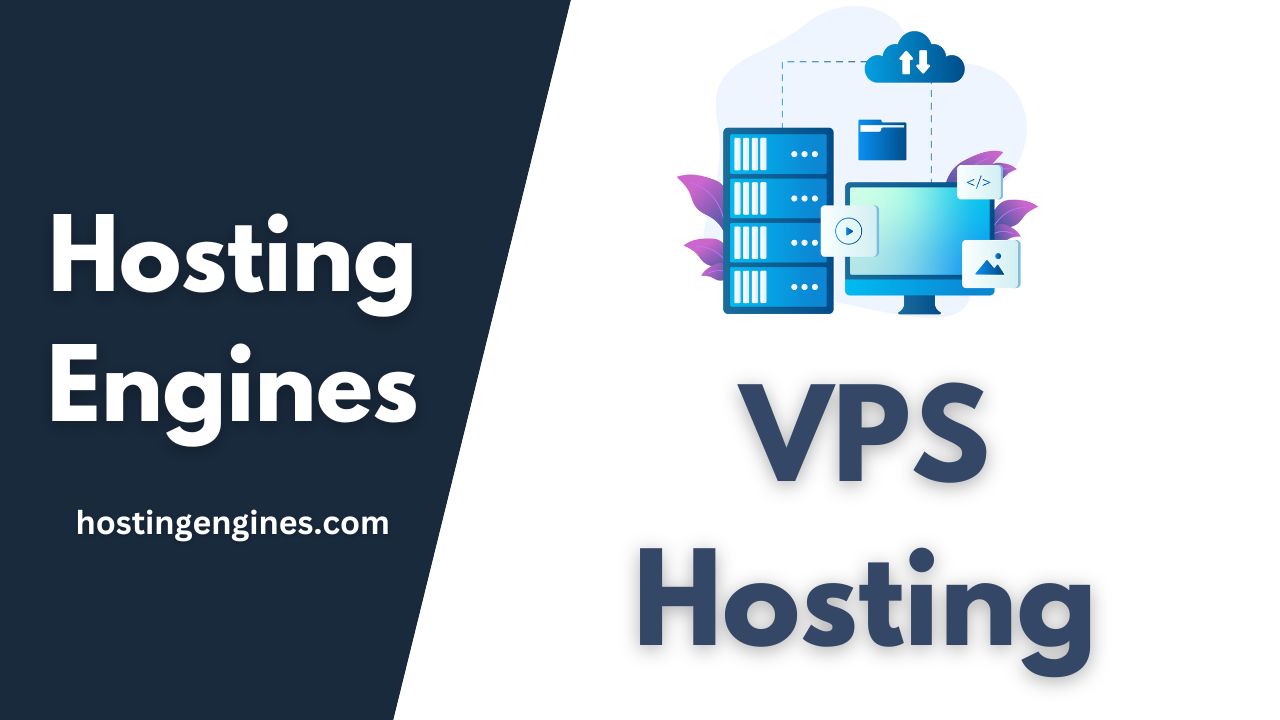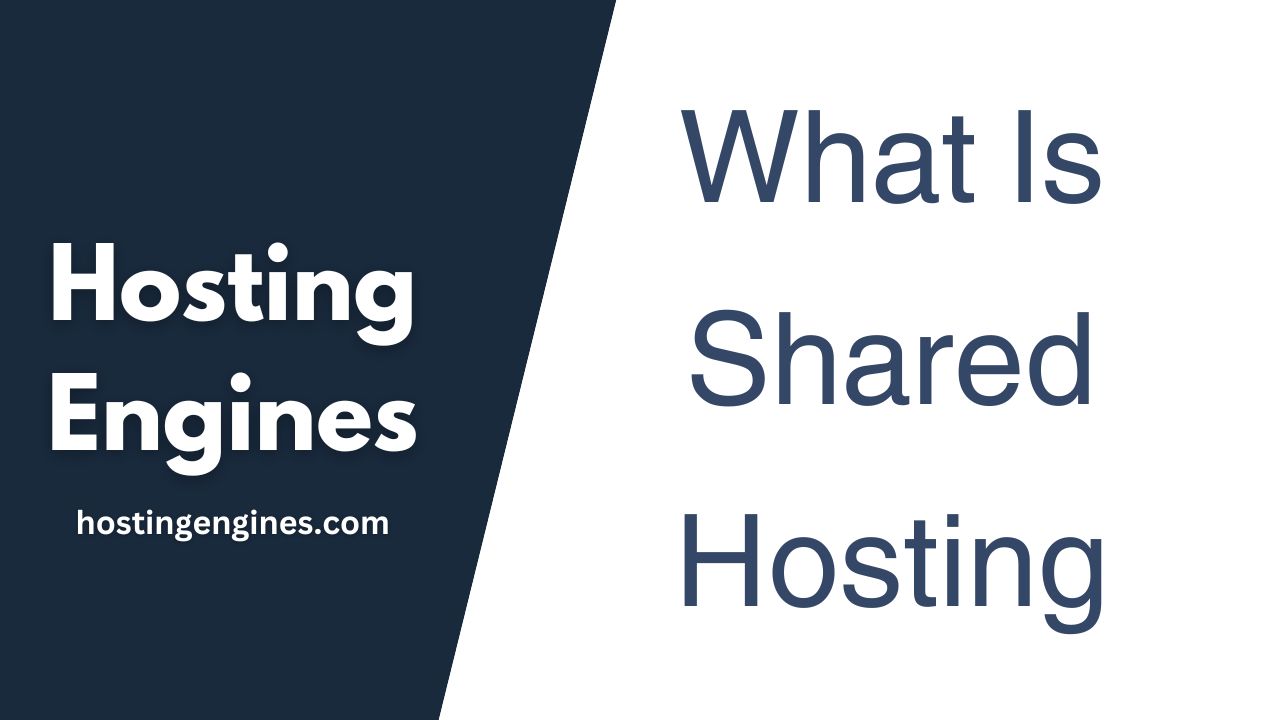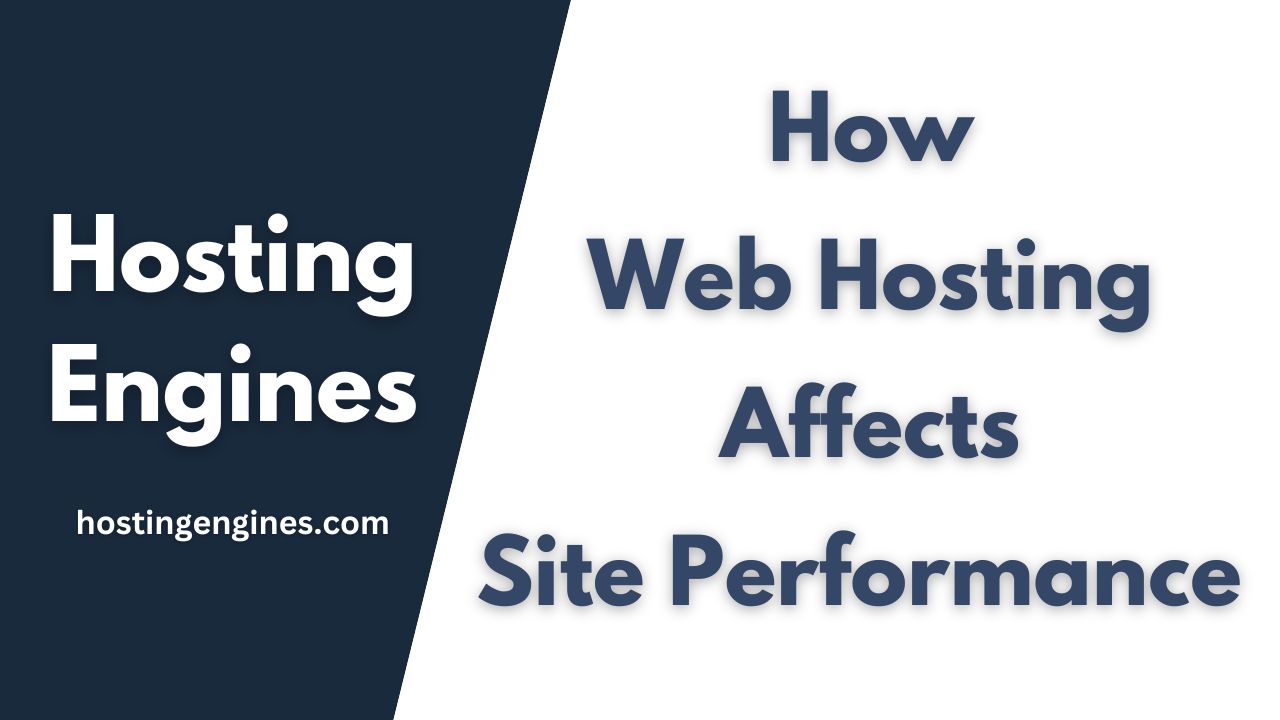When you decide to make a website or start a blog, the next thing you would need to think about is web hosting, a space on the internet to host your website.
In this article, I will explore the different types of web hosting, their pros and cons, and what is best for each hosting type to help you make an informed decision about which one is best for your website.
So, by the end of the article, you will have a clear understanding of the different types while keeping in mind that web hosting affects website SEO, security, loading speed, and site performance.
What Is Web Hosting?
Web hosting is an essential service for any website. It allows to make websites accessible on the internet.
When you create a website, it consists of various files, such as HTML, CSS, images, videos, and other media, that need to be stored on a server.
This server is a powerful computer designed to store and serve these files to visitors when they access your website through their web browsers.
You would rent a server with specific resources depending on your website’s needs, which is a part of/or an entire physical computer.
These servers can be configured in many types, this is what we call web hosting types.
Main and Forked Web Hosting Types
There are four main types of web hosting, these are:
- Shared Hosting.
- VPS Hosting.
- Dedicated Hosting.
- Cloud Hosting.
The rest are branched from the three above but it has been enhanced or changed in a certain aspect.
For instance, the Cloud VPS is actually a VPS, but in the cloud. It has the same type of resources and flexibility, but it has been enhanced to be a better version of the VPS servers.
Another example is Managed Hosting, it can be Shared hosting, Cloud hosting, VPS hosting, or a Dedicated server, but the hosting provider will do all the managing and security approaches.
Examples of forked web hosting types:
- Cloud VPS hosting.
- Managed WordPress hosting.
- Managed VPS hosting.
- Managed Dedicated hosting.
- Managed Cloud hosting.
- Reseller hosting.
Web Hosting Types Concept
For a better understanding of the different types of web hosting, let’s explore this concept through a real-life example.
Think of a building as a physical computer. Each hosting type represents a part of this building.
Shared Hosting is like renting a room in an apartment building. You share resources like the kitchen and toilet with other tenants (websites). It’s cost-effective, but heavy traffic from neighbors may affect your site’s performance.
VPS Hosting offers more privacy, like having your own apartment. You get dedicated resources (kitchen and toilets) within a larger building (physical server), separated by walls (virtualization) from other tenants.
Dedicated Hosting is like owning the entire building. You have exclusive access to all the rooms, kitchen, and toilets (server resources), providing optimal performance and flexibility.
Cloud Hosting is similar to a modern and flexible apartment. It operates on interconnected servers (network of buildings), allowing easy scalability and handling traffic spikes efficiently.
Managed Hosting is like living in a fully serviced condominium. A team of experts takes care of all maintenance and optimizations, providing a hassle-free experience for users.
Reseller Hosting is like subletting rooms in an apartment building. You rent a large apartment (server), divide it into smaller rooms (hosting packages), and lease them to other website owners.
Types of Web Hosting
There are several types of web hosting, each with its own characteristics, advantages, and limitations. Here are 6 common types of web hosting:
1. Shared Hosting:
Shared hosting, as the name implies, is a type of hosting where a bunch of websites are sharing the same server and the same resources on that server.
This means that the resources of the server such as disk space, CPU, and RAM are split between the websites inside the server.
Each shared space comes with a pre-defined amount of storage and bandwidth.
Because the resources are shared, the cost of hosting is relatively low, making it a popular option for small businesses and people with limited budgets.
But this comes at a cost.
For instance, if a website you are sharing the same server with suddenly has gained high traffic, your website’s functionality will be affected negatively.
What is Shared Hosting best for?
Shared hosting is best for new and small websites. If it’s your first time creating a site, it is better to start with shared hosting.
It’s also a great choice for those who are on a budget and want to keep costs low, small blogs, and small business websites.
Shared Hosting Pros:
- The most economical option.
- No technical expertise is needed.
- Easy to set up and manage a website.
- Excellent customer support.
Shared hosting Cons:
- Resources are limited.
- Traffic increases in other websites can negatively impact your website’s performance.
- Some limitations and restrictions.
Best shared hosting providers:
- Hostinger: It’s the best Shared hosting overall. Hostinger review.
- DreamHost: Their uptime is stunning. Dreamhost review.
- A2 Hosting: The fastest shared servers. A2 Hosting review.
Read: Best Cheap Web Hosting Services Under $3/Month.
2. Virtual Private Server (VPS):
Virtual Private Server (VPS) is a type of web hosting service that uses virtualization technology to provide a more powerful and flexible hosting solution.
A VPS is part of a physical server with separate resources. Which allows multiple virtual servers to run independently as if they were on their own separate physical machines.
Each virtual server inside the Physical Computer is allocated a certain amount of resources such as CPU, RAM, and disk space.
These resources are dedicated to that specific virtual server and not shared with other users.
VPS hosting provides a balance between the cost-effectiveness of Shared Hosting and the power and flexibility of Dedicated Servers.
With a VPS, customers have access to more resources and control over their servers, but at a lower cost than a dedicated server.
What is VPS hosting best for?
VPS hosting is best for websites with medium to high traffic, and eCommerce sites with small to medium traffic.
VPS hosting is also a great choice for websites that need more configuration, performance, and security.
VPS Hosting Pros:
- Dedicated resources are exclusive to the server you rent.
- Excellent performance.
- Control over your server.
- More security levels.
- More scalable than shared hosting.
VPS Hosting Cons:
- Requires more technical knowledge.
- Unmanaged VPS hosting lacks support for beginners.
- VPS price can be more expensive than shared hosting.
Best VPS hosting providers:
Here are the best and most used VPS hosting providers:
- A2 Hosting: It’s a great VPS solution with fast servers.
- Liquid Web: High-end server spec which has been designed for intensive workloads.
Read: Best Web Hosting Services For Developers.
3. Dedicated Server Hosting:
Dedicated hosting is the optimum type of hosting where you get the entire server that is completely dedicated to you, but that comes at a huge price.
You get the full benefits of the server, almost zero downtime, and extremely fast loading speeds.
Your website will be functioning at optimum efficiency since you own the whole server.
Dedicated hosting is one of the most expensive types of hosting because you get a physical server that is just for you. You don’t share any of the resources and the costs with other sites.
However, with dedicated hosting, you will have to do all the technical parts of the server settings and configuration by yourself, or hire someone.
This requires a vast technical background. Because of that, this type of hosting is not used by entry-level websites.
But rather by completely rooted websites that get huge amounts of traffic and require a website to perform at peak level.
What is Dedicated Hosting best for?
Dedicated hosting is meant for:
- Large organizations expect to have hundreds of thousands to millions of visitors every month.
- Large eCommerce sites.
- Websites that run high-level technologies that require a high level of resources.
Dedicated Servers Pros:
- Server resources are strictly yours. The whole server is yours.
- Complete management of the server and unlimited access.
- Better security than other hostings.
- Peak functionality and no downtime.
- High uptime and better performance.
- More reliability and flexibility than other hosting types.
Dedicated Servers Cons:
- Extremely costly.
- You need to have full knowledge and technical expertise to uphold the server and website. Or more cost towards developers.
Best Dedicated hosting providers:
- Hetzner: A reliable dedicated hosting at a reasonable cost.
- AWS: Most big names on the internet use Amazon Web Services.
4. Cloud Hosting:
Cloud hosting or Cloud VPS Hosting is VPS hosting but in the cloud. You can consider it as an upgrade or a better version of VPS.
Instead of your server being in only one physical computer they are rather distributed over several servers and work as clusters.
This network ensures that if one server fails or faces any issues your website won’t crash because the other servers will step in.
This guarantees lower downtime due to sudden falls and better performance of your website.
The biggest advantage of cloud hosting is that it is adaptable, which means you won’t have to pay extra to get more resources that you are not sure you will use.
Instead, you could alter these resources within your settings when needed.
What is Cloud hosting best for?
- Blog with medium to high traffic.
- CMS and PHP sites.
- Medium-sized websites with moderate to high traffic.
- Small to medium online stores or e-commerce websites.
- Businesses that require a better level of security and privacy.
- Apps that need the ability to run custom software or configurations.
- Business websites require more control over their hosting environment.
Cloud hosting Pros:
- Adaptable so you can get resources when required.
- Higher uptime and better performance than the VPS.
- Manageable you can pick the configurations that best suit you.
- Low prices compared to VPS and offer Pay as You Go option.
- Dedicated resources on shared CPU.
- Fantastic performance, loading speed, and uptime.
- More security and stability.
- Scalable and flexible.
- Complete control over the server for customization.
Cloud hosting Cons:
- Requires a certain amount of technical knowledge for configuration options.
Best Cloud hosting providers:
Here are the best web hosting services for Cloud VPSs:
- Vultr: The best cloud hosting solution overall.
- DigitalOcean: Most famous cloud hosting provider.
- Linode: Reliable with Fast servers.
When you sign up for each of these three cloud hosts using our link, you will get $100 free credit.
Read DigitalOcean vs Vultr vs Linode.
5. Managed Hosting:
Managed hosting is a type of hosting plan that is made for specific site needs.
In addition to managing the website and server by the hosting providers, they also offer extra services such as resources, security, certain plugin addons, etc.
But this comes at an additional cost.
There are many managed hosting types we can mention some:
- Managed WordPress Hosting.
- Managed VPS Hosting.
- Managed Cloud Hosting.
For example, Cloud Managed Hosting is like Cloudways. They give you the option to choose a cloud host for your server such as DigitalOcean and they do all the hard work for you.
They also offer more features such as add-ons, SMTP, emails, CDN, and domain management, as well as offering great support.
But the server that costs $7 on DigitalOcean, costs $14 on Cloudways. Still, it is worth it considering it’s a Cloud hosting.
Read Managed vs. Unmanaged Hosting.
What is Managed hosting best for?
Managed hosting is best for beginners who don’t have much knowledge about web hosting but want to start big with Cloud or VPS servers.
Or for those who seeking a more secure environment for websites and fully configured servers and ready to use.
Managed Hosting Pros:
- Security features are enhanced.
- No technical background is needed so it’s easier to use.
- Constant client support to help you with whatever issues you may face.
- Provides constant backups for your data.
- Faster loading speed and better site performance.
- Admittance to plugins and addons and easy one-click downloads.
Managed Hosting Cons:
- You are a bit less in charge concerning your server’s arrangement.
- More expensive because of the added support.
- Some plugins are blocked
Best Managed hosting providers:
- Cloudways: The best Managed Cloud hosting. Dedicated server with unlimited sites. Read Cloudways review.
- Kinsta: One of the best Managed WordPress hosting.
6. Reseller Hosting:
In reseller hosting, you buy hosting from web hosting service providers at wholesale prices and then resell these services to other clients at whatever price you would like.
You will be responsible for all of your clients’ websites and you will have to do the maintenance tasks to make sure their websites are functioning properly.
Reseller hosting is most suitable for people who build websites for several clients.
Who is Reseller hosting best for?
Reseller hosting is meant for web developers and creators. For those who work with clients, buy web hosting, build sites, and sell it to their clients.
Reseller hosting Pros:
- Regular income from clients.
- Complete control of the hosting service.
Reseller hosting Cons:
- The complete responsibility for the clients’ sites including maintenance, support, and updates.
- Need a large client base to make the task worth your time.
Best Reseller hosting providers:
A2 Hosting: A2 Hosting is one of the best Reseller hosting on the internet. A2 Hosting review.
Web Hosting Types Comparison
| Comparison | Shared | Managed | VPS | Cloud | Dedictaed |
|---|---|---|---|---|---|
| Ease of use | Easy | Easy | Medium | Medium | Hard |
| Cost | Low | Medium | Medium | Variable | High |
| Performance | Limited | Good | Good | Scalable | Excellent |
| Control | Limited | Limited | High | High | Full |
| Scalability | Limited | Good | Good | Excellent | Limited |
| Security | Good | Better | Better | Better | The best |
| Customer support | Yes | Yes | Kinda | Kinda | No |
| Knowledge required | No | No | Yes | Yes | Yes |
| Ideal for | Small websites | Small to medium | Growing businesses | Variable traffic | High-traffic sites |
Which Web Hosting Type is Best For You?
- If your website is small or new with less to zero traffic and you are on a budget, Shared hosting is the best choice for you. For this type, we recommend Hostinger for as low as $1.99/month.
- When your website is getting medium to high traffic and you want a web hosting service that gives you more control over your server and high performance, fast loading speed, and more security features, and you have the expertise to configure your server, go for VPS and Cloud Hosting. For these two types, Vultr is our recommendation for as low as $2.50/month.
- If you want the same features that are in the Cloud and VPS hosting, but you don’t have the time or knowledge to manage servers by yourself, you should opt for Managed Hosting. The best and most affordable web host for this type is Cloudways, for as low as $11/month.
- When you want to build a really big company site or a large e-commerce store, and you can afford to pay, Dedicated servers are the plans to go. AWS is the best one for this type.
Conclusion
In this article, I have shown various web hosting options, including shared hosting, VPS hosting, dedicated hosting, cloud hosting, managed hosting, and reseller hosting, each offering a unique set of benefits and considerations and having different prices and offers different resources and performance.
Choosing the right web hosting type for your website is a crucial decision that can significantly impact its performance, security, and overall success. Read how to choose a web hosting provider.






